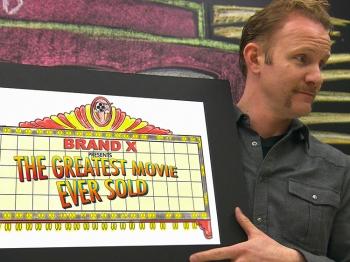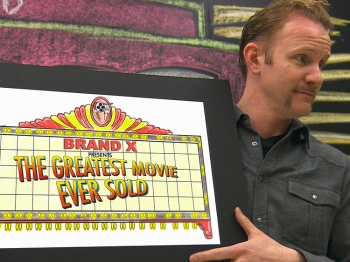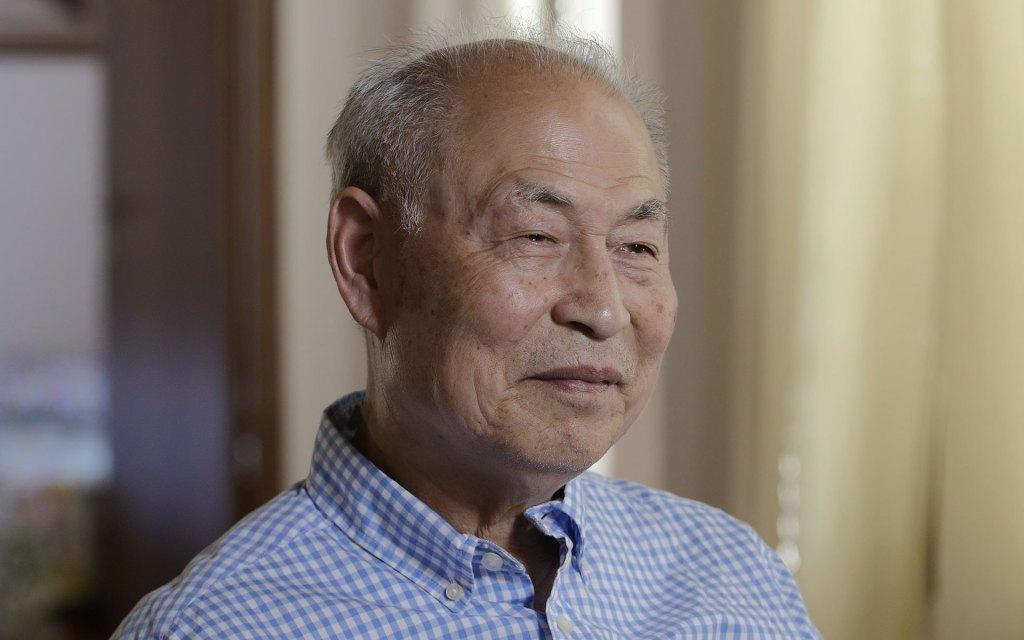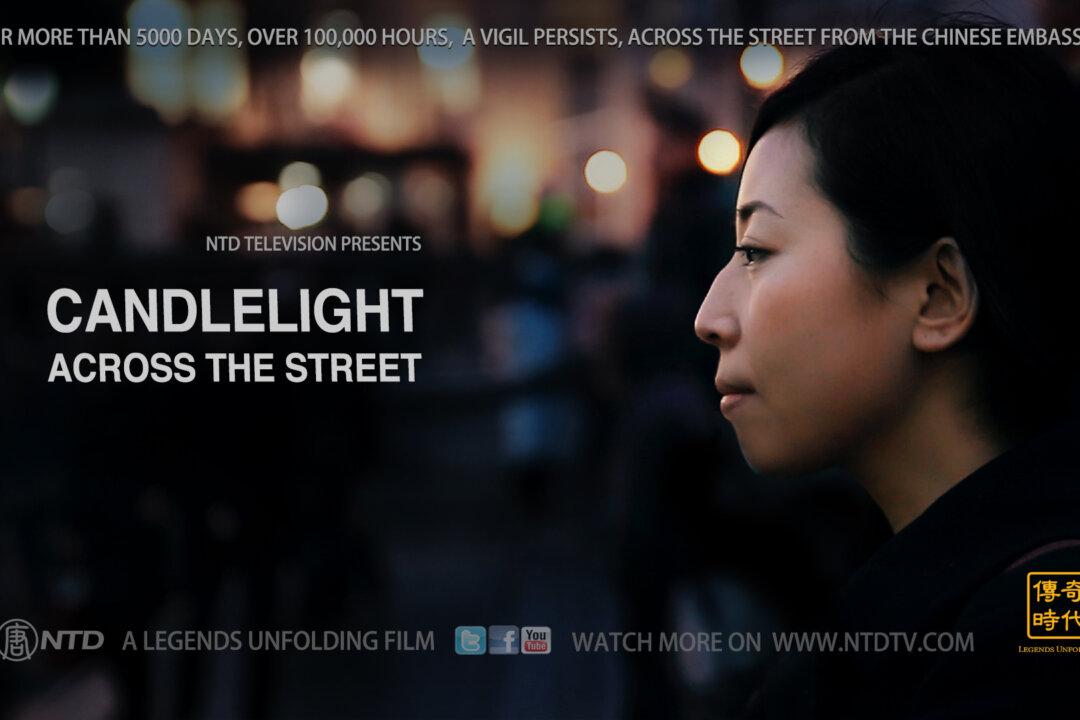The Greatest Documentarian Ever Interviewed
Wearing his snazzy product placement logo suit, Morgan Spurlock greeted me warmly in early April in the mezzanine of of the Andaz Hotel with a firm handshake, direct gaze, and endearing smile.
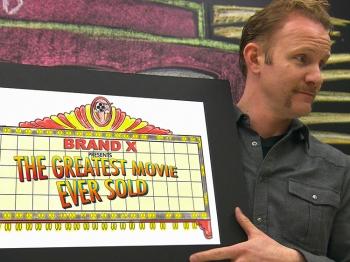
PROMOTION PLIGHT: Morgan Spurlock director of the documentary 'POM Wonderful Presents: The Greatest Movie Ever Sold.' Sony Pictures Classics
|Updated:
